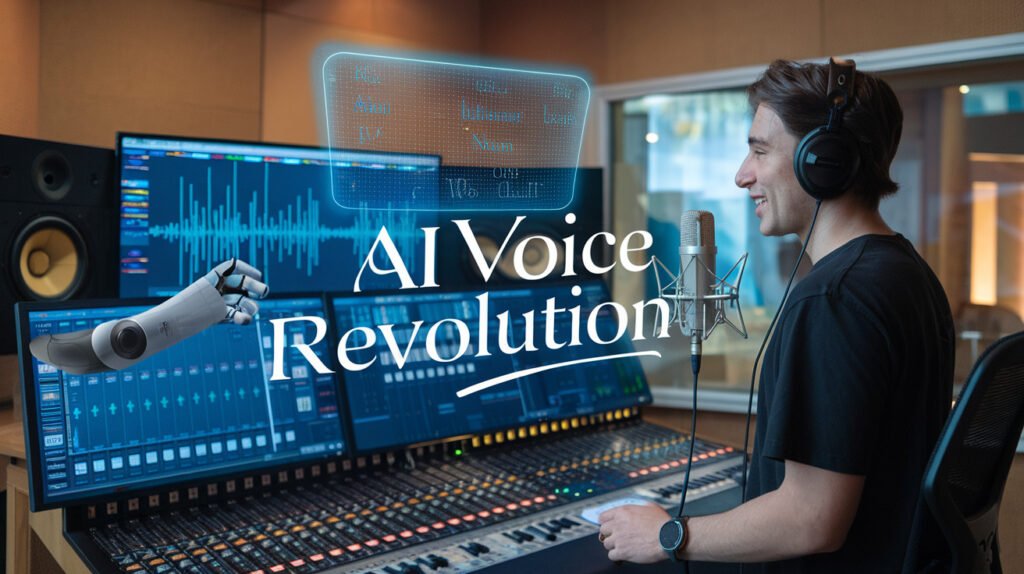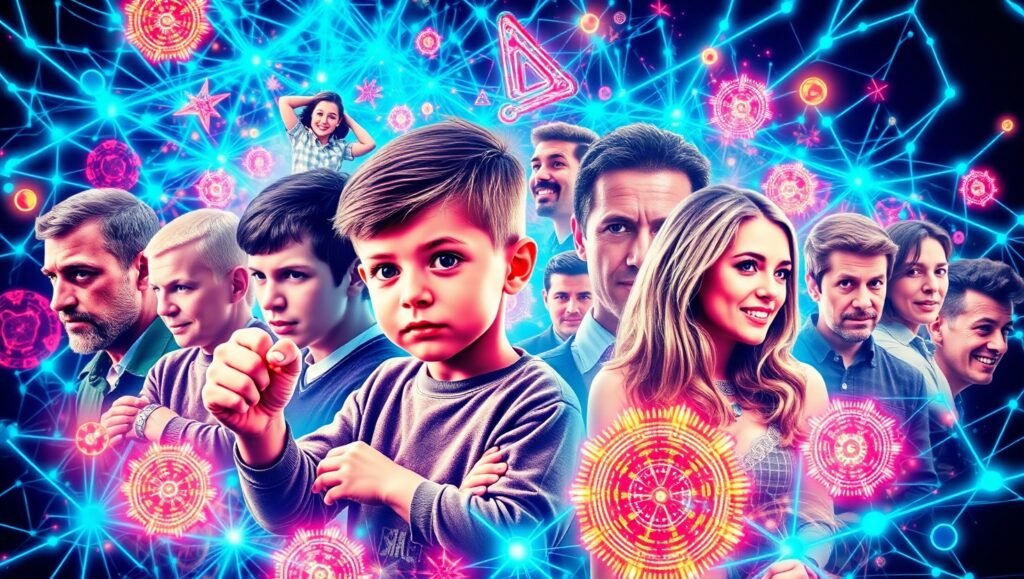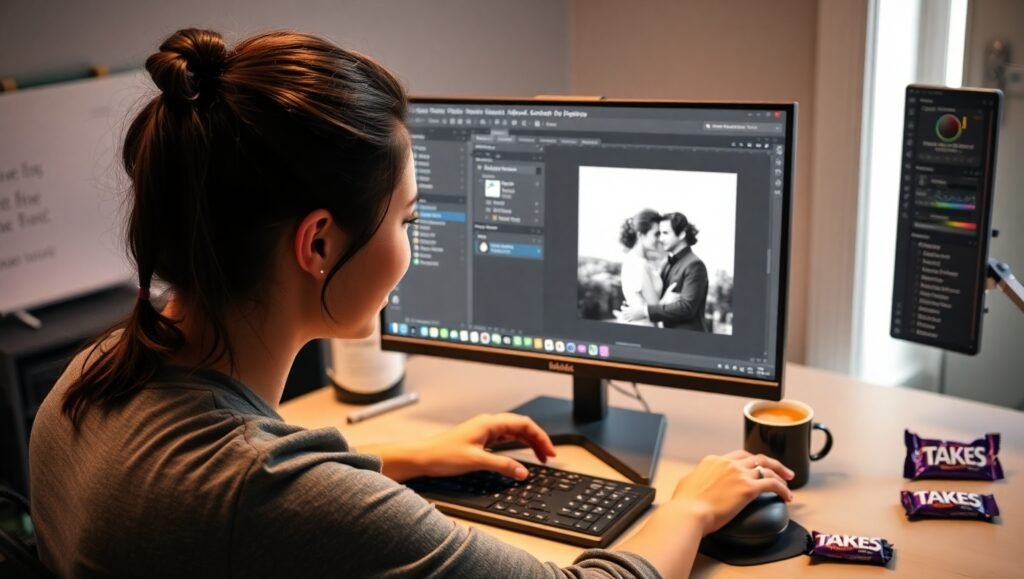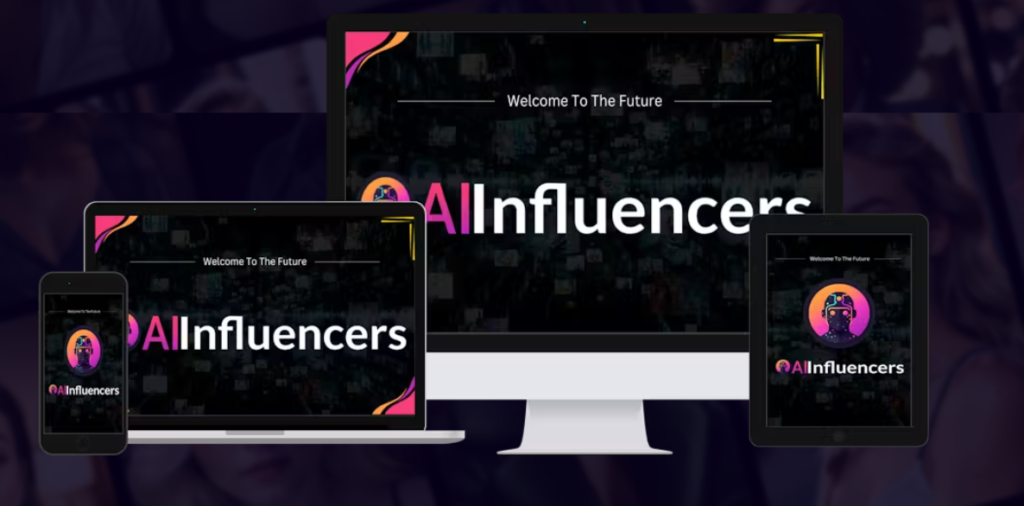Imagine a global where your favorite audiobook narrator can study any tale, in any language, at any time. 🎧 Sounds like technological know-how fiction? Think once more. Artificial Intelligence is revolutionizing the voice over industry, turning what turned into as soon as a far off dream into reality.
From film trailers to company education videos, AI-driven voice over answers are making waves, promising faster manufacturing times, lower charges, and remarkable flexibility. But what does this mean for voice actors, content material creators, and customers? Are we on the point of a voice over revolution, or are there hidden pitfalls we need to bear in mind?
In this submit, we’ll dive deep into the sector of AI voice overs, exploring how this generation is reshaping the enterprise panorama. We’ll unpack the internal workings of AI-driven voice over tech, take a look at its effect on production processes, and investigate the satisfactory enhancements which might be turning heads. From applications throughout diverse sectors to the ethical questions raised, we’ll cowl all of it – and peek into the crystal ball to peer what the future would possibly preserve. 🔮 Ready to explore the voice of the destiny? Let’s start.
Understanding AI-Driven Voice Over Technology

A. Definition and key components
AI-driven voice over era refers to the use of synthetic intelligence to generate human-like speech from textual content enter. This revolutionary method combines numerous key additives:
- Natural Language Processing (NLP)
- Text-to-Speech (TTS) engines
- Deep Learning algorithms
- Voice Cloning techniques
These additives work collectively to create artificial voices that intently mimic human speech patterns, intonation, and emotional nuances. Here’s a breakdown of every issue:
| Component | Function |
|---|---|
| NLP | Analyzes and interprets text input |
| TTS | Converts text into spoken words |
| Deep Learning | Improves voice quality and naturalness |
| Voice Cloning | Replicates specific voice characteristics |
B. How AI voice synthesis works
AI voice synthesis is a complicated system that includes a couple of steps:
- Text Analysis: The device strategies the input text, figuring out punctuation, sentence shape, and context.
- Phoneme Generation: Words are broken down into phonemes, the smallest units of sound in speech.
- Prosody Prediction: AI determines suitable rhythm, pressure, and intonation.
- Waveform Generation: The gadget creates audio waveforms primarily based on the analyzed information.
- Post-processing: Final adjustments are made to beautify naturalness and clarity.
C. Advantages over traditional voice over techniques
AI-pushed voice over generation offers numerous benefits as compared to conventional techniques:
- Cost-effectiveness: Reduces the need for costly studio time and voice skills
- Scalability: Easily produces content in multiple languages and accents
- Consistency: Maintains uniform voice best across projects
- Flexibility: Allows for short edits and updates without re-recording
- Accessibility: Enables content introduction for people with speech impairments
These benefits have caused increased adoption of AI voice over answers across diverse industries, revolutionizing the manner audio content material is produced and consumed.
Impact on Voice Over Production

A. Faster turnaround times
AI-pushed voice over answers have revolutionized production timelines, dramatically reducing the time required to create wonderful voice overs. Traditional strategies frequently contain scheduling recording periods, multiple takes, and enormous enhancing. In comparison, AI voice over generation can generate polished audio in a depend of mins.
- Time financial savings:
- Instant generation of voice overs
- Elimination of recording studio bookings
- Reduced editing time
| Traditional Process | AI-Driven Process |
|---|---|
| Days to weeks | Minutes to hours |
| Multiple recording sessions | One-time text input |
| Extensive editing | Minimal post-processing |
B. Cost-effective solutions
The implementation of AI in voice over manufacturing offers great cost financial savings for corporations and content creators. By getting rid of the need for expert voice actors and expensive studio time, AI voice overs offer a finances-friendly alternative with out compromising on first-class.
C. Scalability for large projects
AI voice over technology excels in dealing with massive-scale projects that would usually require widespread assets and time. Whether it’s creating voice overs for a whole e-mastering course or dubbing a sequence of motion pictures, AI can effects scale to satisfy the needs of even the most ambitious tasks.
D. Multilingual skills
One of the maximum brilliant features of AI-pushed voice over solutions is their potential to supply extraordinary voice overs in multiple languages. This capability opens up new opportunities for global content material distribution and localization, permitting agencies to attain worldwide audiences readily.
- Benefits of multilingual AI voice overs:
- Seamless localization of content material
- Consistent brand voice across languages
- Reduced want for multiple voice actors
Now that we’ve got explored the impact of AI on voice over production, permit’s delve into the great enhancements that AI generation has introduced to the enterprise.
Quality Improvements in AI Voice Overs

A. Natural-sounding voices
AI-driven voice over era has made considerable strides in producing herbal-sounding voices. Modern artificial voice answers leverage advanced device gaining knowledge of algorithms and neural networks to investigate and mirror human speech patterns. This results in AI-generated voices that are an increasing number of tough to distinguish from human voice actors.
Key upgrades in herbal-sounding AI voices consist of:
- Improved prosody and intonation
- Realistic pauses and respiratory styles
- Accurate pronunciation of complicated phrases
- Seamless mixing of phonemes
| Feature | Traditional TTS | AI-Driven Voice Over |
|---|---|---|
| Naturalness | Robotic, monotonous | Human-like, fluid |
| Expressiveness | Limited | Wide range of emotions |
| Adaptability | Fixed voice models | Customizable voices |
| Consistency | Variable quality | Uniform across projects |
B. Emotional range and inflection
One of the most enormous improvements in AI voice over technology is the capability to carry emotions and use suitable inflections. Modern AI structures can now:
- Interpret context and adjust tone hence
- Express a wide range of emotions, from joy to unhappiness
- Apply emphasis to key words and terms
- Vary pitch and pace to create more engaging narrations
These upgrades permit AI-generated voices to deliver performances that resonate with audiences, making them appropriate for a variety of applications, from audiobooks to advertising content material.
C. Customization alternatives
AI voice over solutions offer unheard of degrees of customization, allowing users to tailor voices to their specific needs. Some key customization functions consist of:
- Voice cloning: Replicating unique human voices
- Accent and dialect changes
- Age and gender changes
- Personality traits integration
This flexibility permits content creators to find the correct voice for his or her tasks with out the limitations of traditional voice actor availability.
Applications in Various Industries

A. E-learning and training
AI-driven voice over era is revolutionizing the e-learning and schooling area. By offering tremendous, customizable voices for instructional content, AI is making gaining knowledge of extra attractive and handy.
- Personalized learning studies
- Multi-language aid
- Cost-effective content introduction
- Improved accessibility for visually impaired students
B. Entertainment and gaming
The entertainment and gaming industries are leveraging AI voice overs to create immersive stories and dynamic characters
| Application | Benefits |
|---|---|
| Video games | Diverse character voices, real-time dialogue generation |
| Animated films | Efficient production, consistent voice quality |
| Virtual reality | Interactive narratives, personalized experiences |
C. Advertising and advertising
AI voice overs are transforming marketing and advertising strategies via enabling:
- Personalized advert campaigns
- Multilingual content advent
- A/B checking out of different voice patterns
- Rapid manufacturing of radio and video commercials
D. Accessibility services
AI-powered voice over answers are enhancing accessibility throughout various structures:
- Screen readers for visually impaired users
- Real-time captioning and audio description
- Text-to-speech programs for content material consumption
- Voice-enabled assistive technology
E. Corporate communications
Businesses are adopting AI voice overs for internal and outside communications:
- Automated customer support responses
- Company-huge announcements and training substances
- Consistent emblem voice across all touchpoints
- Localization of corporate messages for global audiences
As we’ve visible, AI voice over generation is finding programs throughout a huge range of industries, improving efficiency, accessibility, and consumer experiences. Next, we’re going to explore the challenges and moral issues that arise from the massive adoption of this generation.
Challenges and Ethical Considerations

Job displacement concerns
As AI-driven voice over solutions emerge as more sophisticated, worries approximately task displacement inside the voice over enterprise are developing. Many voice actors and professionals fear that AI would possibly update human expertise, leading to fewer possibilities and decreased earnings.
- Potential affects on voice over professionals:
- Reduced call for for human voice actors
- Lower charges because of opposition with AI
- Shift in required skills for voice over paintings
However, it’s crucial to be aware that AI also can create new possibilities:
| Opportunities | Description |
|---|---|
| AI-Human Collaboration | Voice actors can work alongside AI to enhance their performances |
| Niche Specialization | Focus on areas where human emotion and nuance are crucial |
| Technology Management | New roles in managing and directing AI voice over systems |
Copyright and possession troubles
The rise of AI voice overs increases complex questions about copyright and ownership. As synthetic voices grow to be extra practical, figuring out the rights to these synthetic creations turns into tough.
Key copyright issues:
- Who owns the rights to an AI-generated voice?
- Can AI voices be primarily based on actual humans without permission?
- How are royalties allotted for AI voice paintings?
Authenticity and consider
As AI voice technology advances, preserving authenticity and consider will become critical. Listeners may warfare to differentiate between human and AI-generated voices, main to potential skepticism and distrust.
- Challenges in maintaining authenticity:
- Emotional reference to target market
- Conveying proper human experiences
- Ensuring transparency in AI voice use
Potential for misuse
The power of AI voice over technology also brings risks of misuse. Bad actors may want to doubtlessly use these gear for deception or manipulation, creating new ethical dilemmas.
Future Trends in AI Voice Over Technology

Integration with different AI technologies
As AI keeps to evolve, we can expect to peer extra integration among voice over technology and different AI-pushed solutions. This synergy will cause extra sophisticated and versatile voice over programs.
- Natural Language Processing (NLP) integration
- Computer Vision collaboration
- Emotion AI incorporation
| AI Technology | Integration Benefits |
|---|---|
| NLP | Improved context understanding and natural responses |
| Computer Vision | Enhanced visual-audio synchronization |
| Emotion AI | More nuanced and emotionally appropriate voice overs |
Advancements in voice cloning
Voice cloning era is unexpectedly improving, providing new possibilities for the voice over enterprise. These advancements will allow for extra practical and customizable synthetic voices.
- High-fidelity voice replication
- Rapid voice version creation
- Cross-lingual voice cloning
Real-time voice translation
The destiny of AI voice over generation will probably consist of seamless actual-time voice translation, breaking down language barriers and increasing international communique.
- Simultaneous interpretation in multiple languages
- Accent and dialect upkeep
- Cultural context edition
Personalized voice assistants
AI-pushed voice assistants turns into extra personalized, imparting tailor-made reviews for customers across diverse devices and platforms.
- Customizable voice profiles
- Context-conscious responses
- Multi-modal interaction skills
As we look in the direction of those thrilling trends, it’s critical to keep in mind the ethical implications and capability demanding situations which can get up with those advancements in AI voice over era.

AI-driven voice over generation is revolutionizing the enterprise, supplying extraordinary performance, quality, and versatility. From speedy manufacturing times to improved accuracy and herbal-sounding voices, AI answers are remodeling how we create and devour audio content throughout diverse sectors.
As we appearance to the future, the ability for AI in voice over paintings is colossal. While demanding situations and ethical considerations continue to be, continued improvements in this technology promise even more sensible and customizable voice alternatives. Embracing these improvements responsibly might be key for professionals and agencies alike to live competitive and deliver awesome audio reports in our increasingly more AI-driven international.
Here are 10 SEO-friendly, high-ranking title suggestions for your article:
- “How AI is Revolutionizing the Voice Over Industry: Benefits, Challenges, and Future Trends”
- “AI Voice Over Solutions: Transforming Audio Production with Speed, Quality, and Versatility”
- “The Future of Voice Overs: How AI is Reshaping the Industry and What It Means for Creators”
- “AI-Driven Voice Overs: A Game-Changer for Content Creation, E-Learning, and Entertainment”
- “From Hollywood to Marketing: How AI is Transforming Voice Over Solutions”
- “AI Voice Over Technology Explained: Natural Voices, Multilingual Capabilities, and Ethical Questions”
- “AI Voice Over Revolution: How Artificial Intelligence is Enhancing Audio Content Production”
- “Voice Over 2.0: Exploring the Impact of AI on Speed, Cost, and Voice Quality”
- “The Rise of AI Voice Overs: How Technology is Redefining Narration and Storytelling”
- “Is AI the Future of Voice Overs? Benefits, Ethical Concerns, and Industry Applications”






